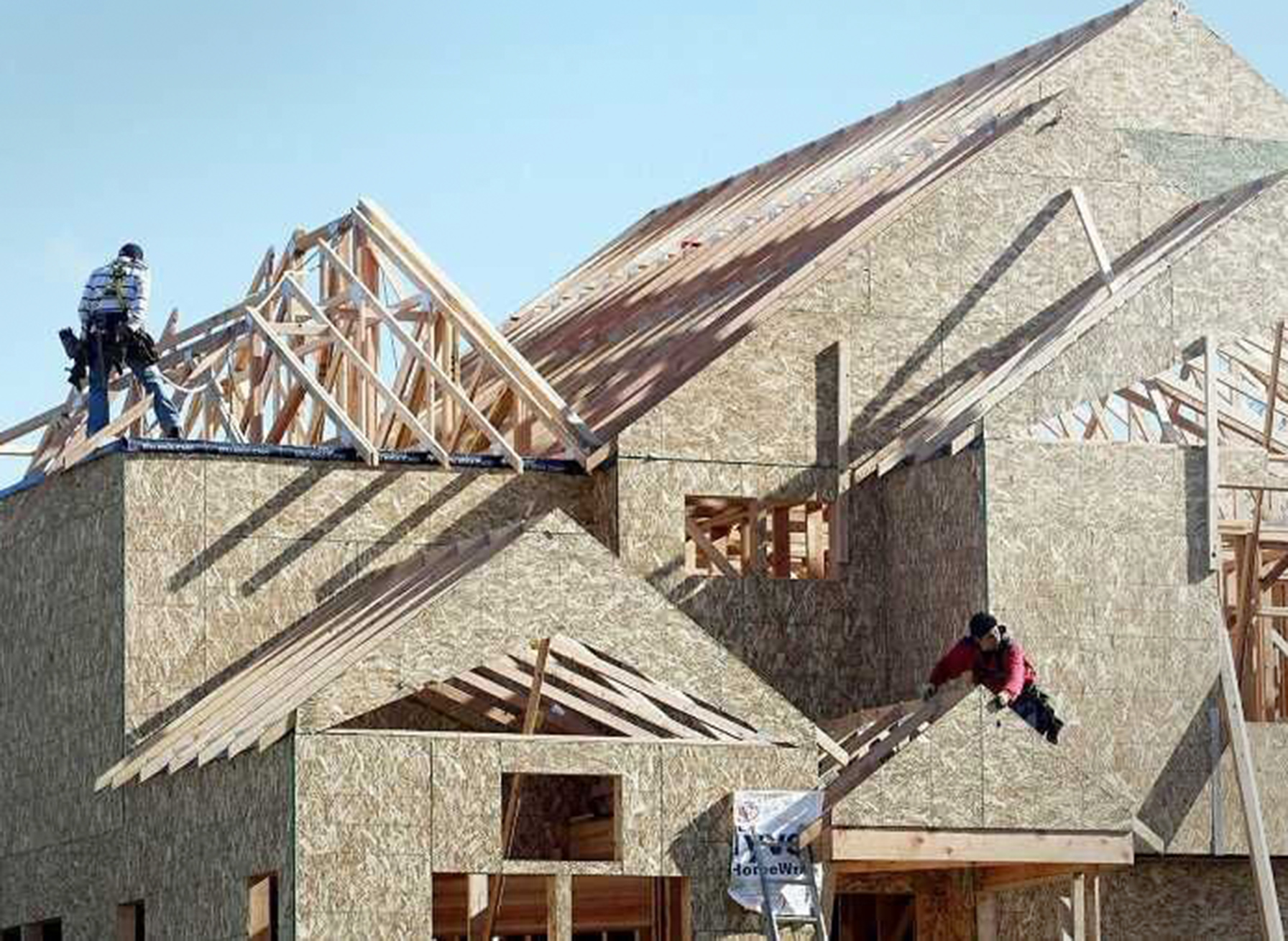PacifiCorp’s response to lawsuit filed by area wineries on wildfire damage: We are not responsible
Published 3:59 pm Wednesday, October 30, 2024

- The public utility named in a lawsuit alleging its negligence led to tens of millions of dollars in damages to the state’s wine industry from the 2020 Labor Day wildfires has provided an answer to the claims against it: We are not responsible. (Staff file photo)
The public utility named in a lawsuit alleging its negligence led to tens of millions of dollars in damages to the state’s wine industry from the 2020 Labor Day wildfires has provided an answer to the claims against it: We are not responsible.
In early October, PacifiCorp and subsidiary Pacific Power answered the complaint filed by a collection of more than 40 northwest Oregon wineries, including several in the Newberg area. The electrical utility’s attorneys denied “any and all allegations in the complaint” and “specifically denies that plaintiffs have been injured or damaged in the (sum) alleged, or in any other sum, or at all, by reason of any carelessness, negligence, act or omission of PacifiCorp.”
The wineries filed suit in Multnomah County Circuit Court in late May alleging that the Portland-based company, despite advance knowledge of weather patterns and high winds creating a perfect scenario for ignition, refused to cut power to transmission lines that then ignited fires in forests and among structures over thousands of acres in the state. The fires took flame in September 2020 at sites along the flanks of the Cascade Mountains from Mill City on the north to Eagle Point in the south, as well as near the towns of Lincoln City and Otis on the west.
Trending
Two of the plaintiffs named in the lawsuit are Dundee-area wineries Domaine Serene and Lange Estate Winery, which are seeking more than $11.74 million and $4.87 million, respectively, in damages. The bulk of the wineries named in the lawsuit are located in the Willamette Valley. They claimed in the lawsuit, which demands a jury trial, that exposure to smoke and soot from the fires destroyed a promising grape crop and the resulting vintage.
“The catastrophe was not a surprise to the public or defendants,” the wineries’ lawsuit said. “On Sept. 6 and 7, 2020, the days before the fire, the National Weather Service, public media, state and local officials and business owners warned the citizens of Oregon, and defendants in particular, that a historic red-flag-warning weather event would occur, producing catastrophic winds in excess of 50 mph and hot, dry air that was likely to cause electrical failures that would cause dangerous fires.”
Neighboring electrical utilities, including Portland General Electric, “all turned off their power to protect the public from their systems failing in the record wind and sparking fires,” the lawsuit continued, saying more than 170,000 customers were affected. “PacifiCorp declined to turn off its power, knowing of the risks to the public. … PacifiCorp chose profits over safety.”
Pacific Power announced on June 3 a $178 million settlement with more than 400 plaintiffs in a separate lawsuit filed after the 2020 wildfires. The victims were primarily owners of properties devastated by the Echo Mountain Complex Fire on the Oregon coast near Lincoln City and the Santiam Fire near Detroit.
As of July, the company had settled nearly 1,500 claims resulting from the fires. However, many lawsuits continue and could drive damages owed by Pacific Power and PacifiCorp to tens of billions of dollars.
PacifiCorp’s response, over the course of 121 paragraphs in the lawsuit, denies the allegations to the wineries’ complaint. It acknowledges in one paragraph that the Beachie Creek Fire, which destroyed thousands of acres of timber land and the town of Detroit, was ignited by lightning in the Opal Creek Wilderness, but denied that the company’s powerlines had any part in the ultimate destruction caused by the fire.
Trending
The remainder of the responses to individual paragraphs, for the most part, elicited either “PacifiCorp denies the allegations in paragraph …” or “PacifiCorp lacks knowledge or information sufficient to form a belief about the allegations in (a paragraph) and on that basis denies them.”
In responding to one statement in the suit, PacifiCorp admits to joining in on a phone call on Sept. 7, 2020, between three utilities and various state government officials, but denies the purpose of the call and says the plaintiffs are inaccurately portraying the call as asking the utilities to turn off power to the affected area. They claim no specific request was made.
The response addressed via affirmative defense many of PacifiCorp’s actions during that fateful weekend (according to Oregon statutes, an affirmative defense brings up new facts or issues not in the complaint that, if true, would be a legal reason why the plaintiff should not win, or should win less than they’re asking for).
“Plaintiffs’ damages, if any, were caused by an uncontrollable force/act of God, which PacifiCorp did not control, could not predict and from which it did not have a duty to protect the plaintiffs,” PacifiCorp said in its sixth affirmative defense.
“Plaintiffs’ damages, if any, were the result of an unavoidable accident insofar as PacifiCorp is concerned, were unintentional and occurred without any negligence, want of care, default of other breach of duty on the part of PacifiCorp,” it said in its seventh affirmative defense.
In its eighth affirmative defense the defendant’s counsel insists the company’s actions “were consistent with available technology, were in compliance with applicable regulations and alternative product or facility design was not feasible or practical.”
While the company’s 12th affirmative defense claims the wineries themselves were “either partially or wholly responsible for the damages they suffered and conducted themselves in ways that were detrimental to their businesses,” the 17th affirmative defense argued that PacifiCorp conformed to industry standards at the time of the fires.
A hearing on case management was slated for Oct. 30 between the lead attorney representing PacifiCorp, Jeffrey Hern of Schwabe Williamson & Wyatt of Portland, and counsel for the plaintiffs. It is expected Hern will ask the judge to schedule a conference to hear his motion for a complex case designation. In Oregon, complex case designation can serve to expedite the case, keep costs down and avoid overburdening the court or the litigants.
The lawsuit seeks more than $102.59 million in damages for the 41 wineries, decrying PacifiCorp for negligence, gross negligence, inverse condemnation (when a government-regulated utility damages or decreases the value of private property without first obtaining ownership) and “spoilation of evidence.” The spoilation of evidence claims stems from allegations by the plaintiffs that PacifiCorp deliberately destroyed evidence gathered during an in-house investigation by the company.
Tainted grapes make wine virtually worthless
The lawsuit argues that due to PacifiCorp’s negligence the 2020 crop of wine grapes were rendered all but useless.
“Grapes and grape juice that are infused with smoke can carry the smoke compounds and smoke taste through the entire wine production, bottling process and sale to the consumers,” the lawsuit said. “Sometimes, the smoke compounds can be tasted early in the process, or sometimes only much later after the wine is bottled.
“On occasion, some wineries can cleanse the (smoky) taste from the grapes and juice during wine production, before the wineries bottle the wine for sale. On other occasions, some wineries can cleanse the smoke taste during the early stages of production, believe they successfully cleansed the smoke particles and then learn that they (smoky) taste emerges after the wine has been bottled.”
Few wineries affected by the wildfires went on to produce and bottle wine from the tainted grapes; most simply discarded the grapes. One Dundee-area wine, Patricia Green Cellars, distilled the tainted wine into whiskey and then blended it with a bourbon produced by a local distillery.







